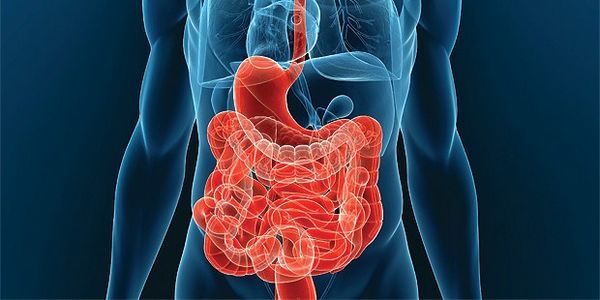Enteritis – treatment of disease. Symptoms and prevention of the disease Enteritis

Enteritis – What is this disease? Enteritis is an acute or chronic inflammation of the small intestine, where violated her gut function.
Enteritis – The cause of the
The main causes of acute enteritis includes:
- infection of viral agents (enterovirus, rotaviruses);
- infection with microbes (the cholera Bacillus, esherihia, salmonella, aureus, etc.);
- allergic reactions;
- poisoning poisons products (berries, mushrooms, etc.);
- exposure to chemicals, heavy metals;
- alcohol consumption;
- abuse of sharp, bold, spicy, etc..
The main causes of chronic enteritis can be attributed:
- giardiasis;
- defeat worms;
- overeating fatty, acute, roughage;
- intoxication in the workplace (chemical compounds, heavy metals, radiation effects);
- bad habits (alcohol, nicotine);
- taking some medicines;
- hereditary fermentopatii, protein;
- autoimmune diseases;
- operations on intestine.
Development of acute, chronic enteritis contribute to sedentary lifestyle, renal pathology, circulatory, abdominal trauma, operations, Spikes.
Enteritis – Symptoms
Acute enteritis, usually, It flows roughly and manifests the following symptoms:
- nausea, vomiting;
- liquid stool from 1-2 to 10-20 or more times per day;
- abdominal pain;
- temperature rise of 37-39 ⁰ c;
- bloating, borborygmus;
- headache, general malaise;
- plaque on tongue;
- signs of dehydration (with severe diarrhea) -dryness of the tongue, skin and mucous, convulsions, weight loss.
- blood coagulation disorders, shock, coma (in severe cases).
Chronic enteritis usually occur less urgent. They are characterized by such manifestations:
- loose stools after eating;
- weak pain around the navel;
- abdominal distention;
- rapid watery stool, sometimes with food particles;
- language is paved with white bloom with prints of teeth.
Chronic diarrhea leads to the development of anemia, osteoporosis, IMR, distrofii, weight loss.
Enteritis – Diagnostics
The basis of the diagnosis are complaints, clinical picture.
Restaging perform diagnostic tests:
- coprogram;
- viral research;
- intestinal Kal group;
- samples for occult blood in feces, the presence of carbohydrates;
- biochemical blood analysis;
- general blood analysis;
- x-ray examination with contrast;
- ultrasound of the liver, pancreas;
- endoscopy of the primary divisions of the small intestine.
Enteritis – Types of disease
On localization of secrete:
- stand-alone enteritis;
- gastroenteritis (enteritis in combination with the defeat of the stomach);
- enterocolitis (enteritis in combination with lesion of colon;
- gastroenterocolitis (the defeat of the stomach and intestines only).
On the extent of inflammation:
- ileitis (inflammation of the small intestine Division iliac);
- ejunit (inflammation of the jejunum);
- total enteritis.
On causes of secrete:
- parasitic enteritis;
- infectious (Viral, microbial) enteritis;
- medicinal enteritis;
- food enteritis;
- toxic enteritis (incl. radiation);
- arising from congenital abnormalities of structure, fermentopatij,
- postoperative.
Also distinguish:
- primary enteritis, emerging as an independent pathology;
- secondary enteritis, developing on the background or as complications of other diseases.
Depending on functional status:
- atrophic enteritis with total or Nidal changes;
- neatroficheskij enteritis.
By severity:
- mild form;
- srednetagelaya form;
- severe form, with or without complications.
Stage of chronic enteritis:
- exacerbation;
- incomplete remission;
- complete remission.
Enteritis – Actions of the patient
If symptoms of enteritis, you must consult your doctor (family doctor, gastroenterologist, infectious disease specialist) for information about the cause of enteritis and treatment.
Enteritis – Treatment
Acute infectious enteritis must be treated in the hospital. In microbial intestinal infection apply antibacterial agents, the virus is only symptomatic treatment:
- diet-boiled, crushed food small portions;
- fighting dehydration through oral ingestion or infusion of glucose solutions, brines;
- the fight against intoxication;
- fermentoterapija;
- chelators;
- correction of violations of microbial balance;
- vitamins, immunotherapy.
In the treatment of chronic enteritis is the mainstay of treatment is a specific diet (the exception of fatty, Acute, irritant, plant milk table with protein enrichment, minerals, small servings, exclusion of rough fiber).
Demonstrates the use of enzyme preparations (pancreatin), proofreaders motility (loperamide), Knitting plant remedies for persistent diarejah (Oak bark, cherry fruit, tutsan), before- and probiotics, multivitamins, mineral supplements.
Enteritis – Complications
Complication of acute enterocolitis in severe fluid loss can be acute vascular insufficiency.
Acute enteritis severe can cause intestinal bleeding, necrosis, perforation of the small bowel.
When toxic, Allergic enteritis may suffer other bodies (liver, heart, Kidney etc. d.).
Enteritis – Prevention
Prevention of enteritis includes hygiene, rational nutrition, careful food handling, a cautious reception of medicines, avoidance of eating toxic products (inedible berries, mushrooms). Besides, You must timely identification, treatment of the pathology of the gastrointestinal tract, endocrine disruption, metabolic disorders.
